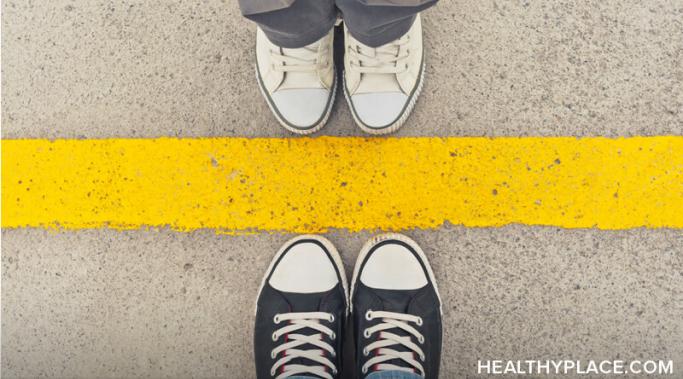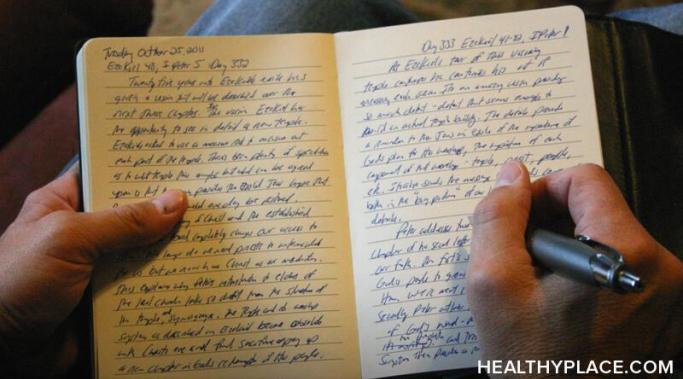Boundaries are one area in my life that I wish I were better at. I have trouble completely putting myself first, even if it becomes a detriment to myself, especially my mental wellbeing. It dawned on me, though, that I had set boundaries before. While I had thought I didn’t really have any, I do have boundaries I’ve set up to protect my mental health. The reason I’ve never really thought of them in that light is that I’ve struggled with feeling like a bad person by doing so.
Self Stigma
Searching for or asking about mental health coping strategies brings up fairly regular suggestions, which include things like meditation, journaling, exercise, and self-care. But, what’s to be done when the chosen strategies to cope with mental health struggles no longer work? It might be easy to fall into self-stigmatizing thoughts of how you must be really “messed up” or beyond help, but here’s why you should reconsider that line of thinking.
Journaling is one way I fight mental health self-stigma and is, fortunately, becoming increasingly popular in today's world. Used as a method for releasing negativity, spurring creativity, and everything in between, journaling can create a safe space for many people who practice it.
Sadly, the news these days is headline after headline of troubling times and struggles for people—and I feel guilty about avoiding it. It’s a conundrum wherein I want to stay informed but must equally do what I can to protect my mental wellbeing. Another conundrum: watching the news can trigger anxiety, depression, and even obsessiveness in me, but avoiding the news triggers guilt.
Negative self-talk can look like being called clumsy, silly, awkward, stupid, and more. The names we call ourselves, the constant criticizing, analyzing, and critiquing all fall into the category of negative self-talk. I have recently become more cognizant of the words I tell myself, and changing to positive self-talk has benefited me so much that it is life-changing. I encourage you to take a closer look at how you talk about yourself and ask, "Would I talk to someone I love this way?" The answer may surprise you.
Gaslighting and self-stigma—do they have ties to one another? I’ve been exploring this concept in my head, especially as I work on my internal mental health struggles. Thinking about both of these terms got the wheels turning, and I thought it would be an interesting discussion to have.
Confession time: I feel like a burden because of my mental illnesses. It's perhaps ironic I've previously written about how mental health stigma makes talking about mental illness feel like a confession, and, now, here I am—confessing. I've never said the words aloud, but feeling like a burden is pretty regular for me, and I don't think people would expect it. So, yes, this feels like a confession. And I'm also questioning if this is self-stigma or reality.
A "Forbes" article from 2019 cites that 80 percent of New Year's Resolutions fail, sharing a number of reasons why that happens.[1] When it comes to your mental health goals, can stigma be one of the things derailing your resolutions? We're nearing the end of this first month into the new year, and I know many people will be evaluating how they're doing with their resolutions, so I wanted to take a look at this topic.
Surviving mental health stigma during isolation sounds like it would be an easy sort of situation. Even with isolation during the COVID-19 outbreak, the general idea of this practice is we're simply staying home and everything is okay, but that's not the case for everyone. Although the word "isolation," especially "self-isolation," gives this sense of being away from harmful things, there are still opportunities for mental health stigma.
Recognizing the only ones we can truly charge are ourselves, it seems it shouldn't be so difficult to stop self-stigma. On the contrary, it can be very challenging. If you are having trouble putting an end to mental health self-stigma, don't worry. It's not just you.









